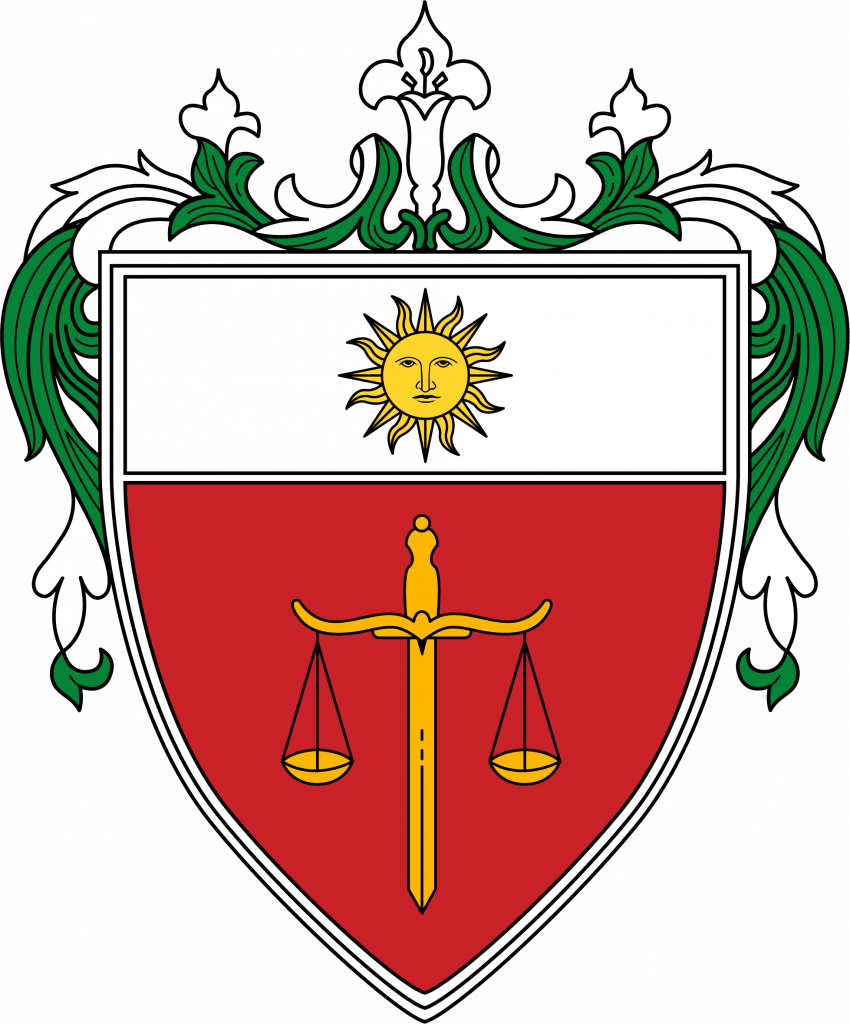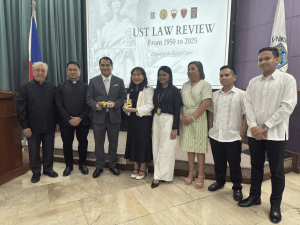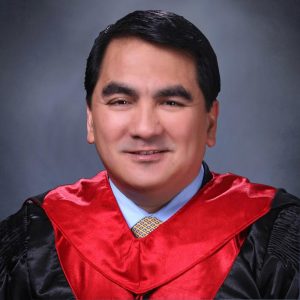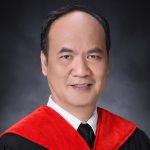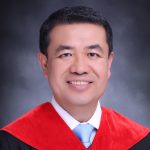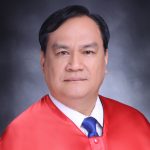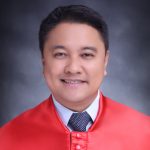(ca. 1175-1275), priest
Patron of the UST Faculty of Canon Law and the UST Faculty of Civil Law
Feast Day: January 7
Belonging to a noble family of Peñafort, Raymond was born in Barcelona, Spain around 1175. He became a distinguished theologian and professor of Canon Law at the University of Bologna; and while there, he joined the Order of Preachers in 1222. Eventually, he was ordained to the priesthood and became a celebrated Master of Canon Law. When Pope Gregory IX appointed him papal chaplain and penitentiary, he compiled and revised the papal Decretals, which was the basis of the Code of Canon Law of the Church until 1917. He had to rewrite and condense the decrees that had been multiplying for centuries. In 1235, he was named Archbishop of Tarragona but he was able to persuade the Pope to recall his appointment due to health reasons.
At the request of his brethren, he composed the famous Summa Casuum, a manual for confessors and preachers concerning the correct and fruitful administration of the Sacrament of Penance. In 1238, he was elected as the third Master of the Order and revised the Dominican Constitution (which was to remain in effect until 1924), but he resigned two years later also due to health reasons. Retiring to Barcelona, he spent the next thirty-five years preaching, hearing confessions and working for the conversion of Jews. He studied the Koran to dialogue with Moslems, and introduced the study of Arabic and Hebrew into several Dominicans convents. Furthermore, it was at his request that St. Thomas Aquinas wrote the Summa Contra Gentiles to aid missionaries in explaining the Christian religion to, and defending it against, dissenting points of doctrine in Islam and Judaism. He died a centenarian in 1275 and was canonized by Pope Clement VIII in 1601.
The reputation of St. Raymond in juridical science and his immense contribution to the codification of the Canon Law underscore the virtues to be imitated by the UST Faculty of Canon Law and the UST Faculty of Civil Law. Established in 1681, the UST Faculty of Canon Law undertakes the work of evangelization to understand, defend and proclaim the faith within the context of culture and human society, collaborating effectively in its pastoral, doctrinal, ecumenical and missionary undertakings. Moreover, the UST Faculty of Civil Law, the oldest lay faculty in the Philippines (1734), continues to impart solid formation, imbued with Christian virtues and principles, and to serve the best interests of the profession, the nation and the Church.
Sources:
- O’Kane, Michael, “St. Raymond of Peñafort,” The Catholic Encyclopedia, Vol. 12, New York: Robert Appleton Company, 1911.
- John Paul II, Sapientia Christiana, On Ecclesiastical Universities and Faculties, 1979.





